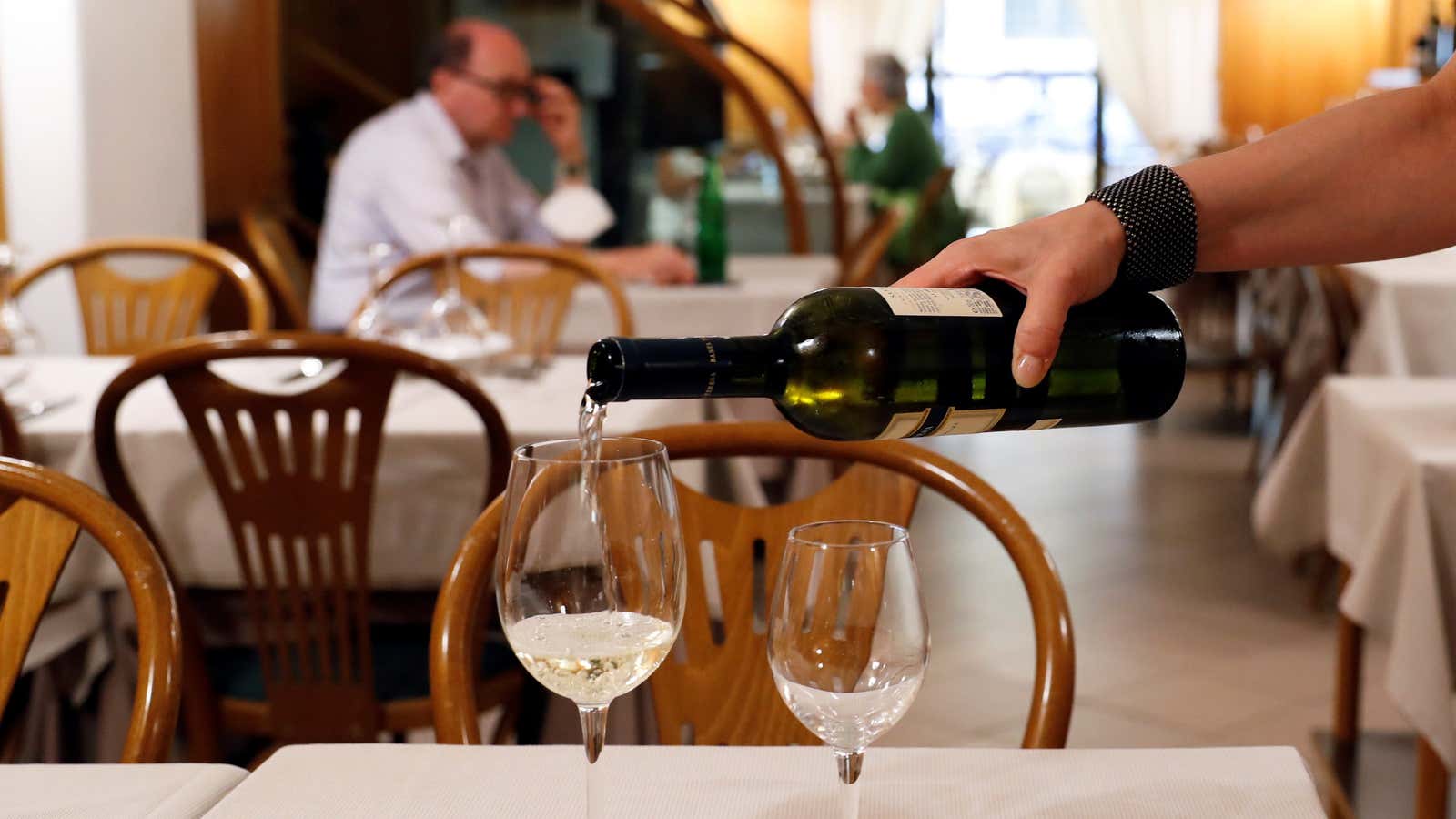As the delta variant of Covid-19 continue to spread, restaurants are placed in a tricky spot: to mandate vaccinations or not?
Some may not have a choice. This week, Mayor Bill de Blasio said New York City will start requiring people to show proof of vaccination for indoor dining, gyms, and entertainment by Sept. 13. Restaurants and bars in various cities from Seattle to Kansas City are also now mandating proof of shots for customers. Last month, Danny Meyer, CEO of the Union Square Hospitality Group and founder of Shake Shack, said he won’t hire workers or serve customers in his restaurants who aren’t vaccinated.
But now restaurants will need to figure out how to navigate implementing or enforcing these new rules, which may be deeply unpopular for some guests, when the very nature of the industry is to serve customers.
The “vaccination police”
One concern is the mandate could put workers at risk. Asking customers to put on masks has led to violence—which could arise again with these new mandates. Marc Perrone, head of the United Food and Commercial Workers union, tweeted that he fears restaurant employees will become the de facto “vaccination police.”
After implementing a proof of vaccination policy to enter the dance floor at Urban MO’s Bar and Grill in San Diego this week, co-owner Matthew Roman says that he has received backlash on social media and Yelp pages as well as people calling complaining about the vaccine mandates. As a result, he’s hiring security guards—for both day and night shifts—to enforce the mandate instead of having his host do it, he says. “Now that we’ve been unmasked and un-mandated for a while, to have to reinforce is going to be a difficult position for all the business owners,” he says.
Last September, the National Restaurant Association rolled out a Covid-related conflict de-escalation training module to support restaurant workers dealing with customer pushback. “Checking vaccination status isn’t like ID-ing a customer before serving them a drink—staff receive training on how to do that,” Larry Lynch, the association’s senior vice president of science and industry, said in a statement.
The training video explains what employees should do when they find themselves in situations where the customer doesn’t want to wear a mask or what happens when a customer pulls out a phone and starts recording. The training urges the employee to remain calm and explain to consumers that it’s the management’s policy or a regulatory mandate, and to try to provide alternatives when possible. As professional workers, staying calm and solving problems is, after all, what they do every day, the module said.
Concern of losing business
Kai Wong, the manager of Kopitiam, a Malaysian restaurant in New York, says the city’s new mandate won’t change much for his restaurant, as it already requires patrons to enter with a mask, and if they didn’t have one, they just needed to show their vaccination card.
But with this new mandate, if people refuse to show proof, Wong says he is concerned this could mean lost business. The mandate will make everyone feel safer, but he says he doesn’t want to “deny [customers] the opportunity to eat at our restaurant.” Instead, he says that he will likely direct those who refuse to follow guidelines to order outside for take out.
As cases continue to rise, the number of restaurant guests has started to decline globally, according to data from OpenTable, an online reservation service.
So far, big restaurants chains have not taken a stance on mandatory vaccinations due to risk of losing customers, says Mahmood Khan, a professor of hospitality and tourism management at Virginia Tech. “When you ask for these kinds of things, it gives an indication that you are not as welcoming as you should be,” he says. Rather than asking for proof of vaccination, McDonald’s has instead re-imposed mask mandates in “high-risk” areas.
Khan says an alternative solution could be restaurants placing vaccination policies signs upfront or directing customers to outdoor ordering. This week, Yelp added features that allow restaurants and other businesses to let their customers know about Covid-19 vaccine requirements, where businesses could add descriptions like “proof of vaccination required” and “staff fully vaccinated” to their Yelp profiles. The reviews site will also place “Unusual Activity Alerts” for when a business gains an unusual uptick in activity on a Yelp page and will take down “review bombing” activity related to their vaccination stance rather than the quality of their business. Since January, the company has removed nearly 4,500 reviews that violated their content policies.
When Covid-19 first upended the restaurant industry, many businesses had to switch to delivery to stay afloat. For Roman, the restaurant owner in San Diego, it’s about staying ahead of the curve. “We know what’s going to happen—we already went through this,” he says. “How do we prevent as much as possible so we’re not shut down or we lose business.”
